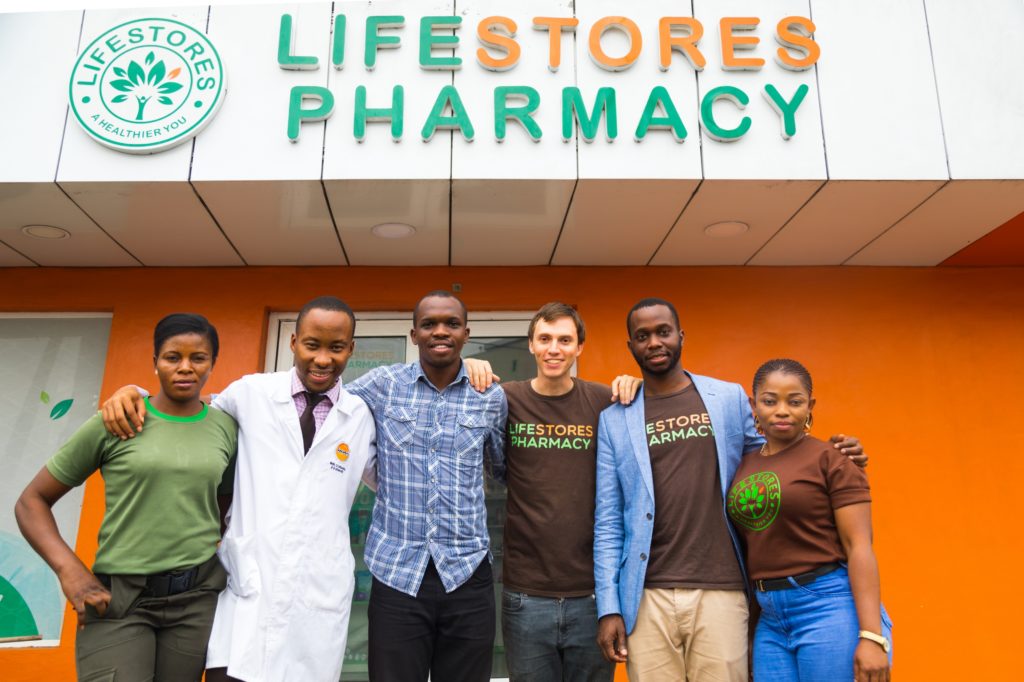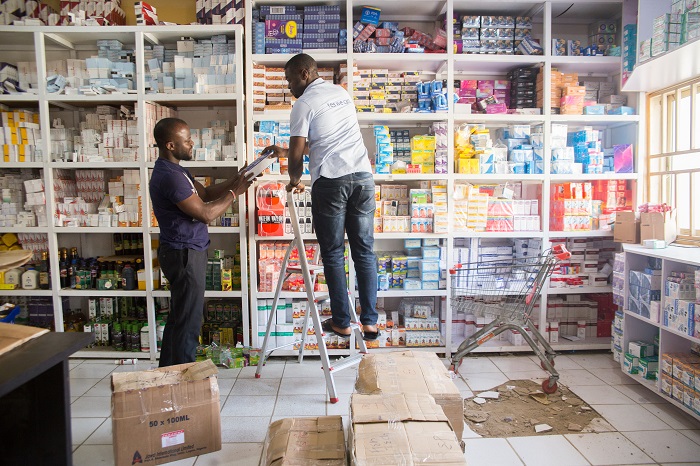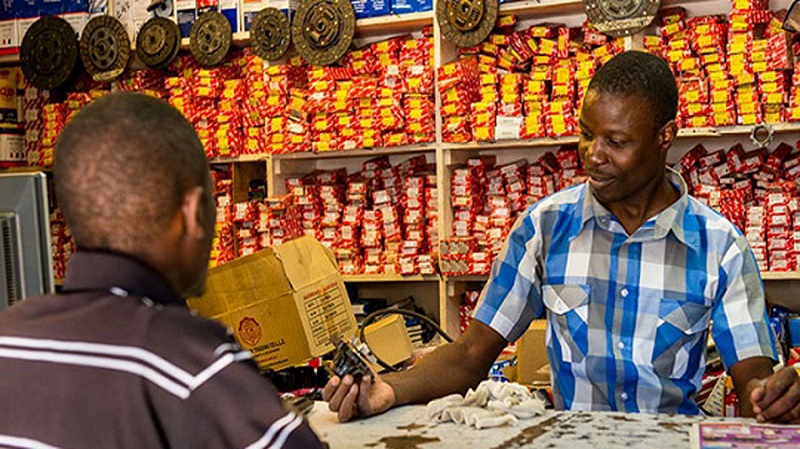Pharmacies are the first contact for millions of Africans accessing healthcare services on the continent. This makes the business a big one. The African pharma market is worth over $50 billion. In Nigeria, McKinsey predicts that the market could grow as high as 9 per cent annually by 2026, contributing between $950 million and $1.1 billion during this period.
But the business is underdeveloped. The demand is high but the supply chain is broken, causing many drug stores to run out of important products quickly and longer times to restock. In most parts of the continent, quality drugs are exported. The supply chain is dominated by a few middlemen who have the links and resources to bring drugs into the country.
To augment supply, some chemists fall victim to fake drugs, putting the lives of their customers at risk. According to the United Nations Industrial Development Organisation (UNIDO) [PDF], fakes account for around 30% of drugs in circulation in the Nigerian market.
This is a problem.
Over the last five years, a number of innovators have identified this problem and have developed their own tech solutions to address it.
Lifestores is one company doing this. They are on a “mission to democratize access to quality healthcare,” the company told TechCabal.

It started operations in 2017 and is using a different go-to-market strategy. Rather than restrict itself to quality drugs delivery to third-party pharmacies, Lifestores has gone into the business for itself.
It has opened a number of drug stores to understand the challenges chemists are facing in their daily operations. In 2019, it operated three stores in Yaba, Ilupeju and Festac. It acquired a fourth store in early 2020 and is on course to take over another store.
Lifestores has developed a software component to its operation for inventory management and to address supply chain issues. It is working directly with pharmaceutical companies to purchase its stock. This makes its drugs cheaper and high quality.
Between 2018 and 2019, its sales have grown by five times, the company told TechCabal.
For the long term, the company is focused on the mass market. It wants to work with thousands of pharmacies to develop a network of stores in Nigeria.
In the West African country, “the [pharmacy] space is incredibly fragmented,” Andrew Garza, Lifestores’ COO told TechCabal in October 2019.
The market leaders own just 2% of the market, “they’re quite small compared to other markets like South Africa where the single lead tends to have as much as 30% of market share,” he said.
For its franchising model, Lifestores provides third-party stores (which it calls affiliates) with the software to manage their processes and inventory.
“We’ve developed the software that will be the foundation of the program,” Garza told TechCabal. “[We] are currently testing it in our own stores before rolling it out to 3rd party pharmacies.”
By the end of March or the next quarter, Lifestores will roll out the pilot to include third-party stores. The full rollout would happen later in the year.
“The focus of the program will be on helping pharmacies manage their inventory more efficiently,” Garza said, “providing them with group purchase discounts and enabling them to better serve customers.”
The company recently closed an over $1 million seed-stage funding round.
The round was led by Consonance Investment Managers. Other investors who participated include Flying Doctors Nigeria Group & the Greentree Syndicate, the StartUp Health Transformer Fund, Altadore Lionbear Capital, Unseen Ventures, K50 Ventures, Chinook Capital and Kepple Africa Ventures. A number of angel investors also invested in this round.
Lifestores is not the only pharma-focused company generating a buzz.
Field Intelligence is another startup attracting a lot of attention. The health-tech company is focused on supply chain issues for pharmacies. It has around 280 pharmacies signed up to its service. The five-year-old company just closed a $3.6 million Series A round led by Blue Haven Initiative, one of the world’s biggest impact investors.
Ghana’s mPharma is one of the biggest movers in the African retail drug market. The seven-year-old company raised $12 million Series B funding last year. It operates in five countries and expanded to Kenya by acquiring the country’s second-largest pharmacy chain.
54gene, a Nigerian startup, is providing pharma companies with genomics data about Africans that makes it easier for them to develop effective drugs. The startup raised $4.5 million in 2019.
In 2018, Nigerian pharmacy chain, HealthPlus raised $18 million from Alta Semper Capital, a London-based investor. Founded in 1999, Health Plus has 80 stores and plans to expand across West Africa.
In February, three Ghanaian pharmaceutical companies merged to create the largest drug company in the country. The new entity, Dannex Ayrton Starwin Plc or DAS Pharma, will produce around 80 drugs and is planning to expand across Africa. Daniel Apeagyei Kissi, DAS Pharma’s CEO, said the new entity will take advantage of new trends in the market spurred by tech.
“[DAS Pharma] is coming into the market at an opportune time when the industry as we know is changing,” a Ghanaian publication quoted him as saying.
“Consumer and customer needs are changing, industry players are integrating vertically, dealer-owned brands are appearing on the market and technology is manifesting in online pharmacies, electronic payment, online healthcare systems [and] online doctors.”
“DAS Pharma is well placed to respond to and take advantage of to make even greater history,” he said.
These are exciting activities in the pharma market and could fuel more investor interests.




















